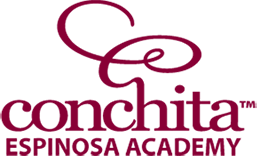
Extracurricular activities are more than hobbies or after-school programs; they are powerful extensions of the classroom. They provide children with opportunities to develop discipline, teamwork, creativity, and leadership, all while enjoying fun moments and exploring passions that enrich their education. From athletics to the arts, these experiences shape well-rounded students who carry valuable skills into every area of life.
Here are eight extracurricular activities from a private school Miami parents choose that enhance learning and development.
1. Soccer
Soccer is one of the most popular sports worldwide, engaging children in fast-paced teamwork that requires communication, coordination, and endurance. On the field, players learn to strategize, balancing individual skills with group objectives. Beyond physical fitness, soccer nurtures social bonds and teaches children the value of collaboration. Research published in the Journal of Sports Sciences found that team sports like soccer significantly improve problem-solving abilities and social skills in children, skills that directly translate to the classroom, where teamwork and persistence are equally vital.
2. Basketball
Basketball combines physical activity with mental agility, as players must make quick decisions while staying aware of their team’s dynamics. The sport enhances motor coordination, balance, and endurance, while also teaching leadership and resilience. Students develop a sense of accountability because each player’s contribution influences the outcome of the game. According to the Aspen Institute’s Project Play, basketball is one of the top activities for promoting lifelong physical activity due to its accessibility and emphasis on teamwork. Its lessons in perseverance and goal setting carry over into academic challenges, helping students build focus and determination both on and off the court.
3. Ballet
Ballet is a classical dance form that emphasizes discipline, grace, and precision. Students learn complex choreography, musicality, and the art of storytelling through movement. The structure of ballet instills patience and focus, qualities that support academic achievement. Neuroscientific studies show that dance, particularly structured styles like ballet, stimulates the brain’s memory and coordination centers. In fact, research published in Frontiers in Human Neuroscience found that dance training improves both spatial awareness and working memory, skills essential for problem-solving in subjects like math and science.
4. Theatre
Theatre introduces students to the fundamentals of creative dramatics and acting techniques through process-oriented classes. Students explore improvisation, movement, and literature while developing an awareness of their own creativity and that of others. Emphasis is placed on ensemble building, spontaneity, presence, voice, and storytelling. Working as a collective, students refine their ability to convey human behavior with depth and authenticity. The American Alliance for Theatre and Education reports that students involved in drama programs at a private school Miami parents choose, score better on standardized tests and are more likely to excel in reading comprehension. By embodying different perspectives, children also strengthen empathy and communication skills that benefit them both academically and socially.
5. Martial Arts
Martial arts are structured practices that teach self-defense, discipline, and mindfulness. Beyond physical techniques, students engage in rituals of respect, such as bowing and reciting creeds, which promote humility and self-control. Classes encourage perseverance, as students progress through belt systems that reward dedication and resilience. The practice also strengthens focus and concentration, helping children channel their energy in positive ways. As confidence grows, students become more willing to take on challenges both inside and outside the classroom. Research published in The Journal of Applied Developmental Psychology found that children who practiced martial arts showed notable improvements in self-regulation and classroom behavior.
6. Visual Arts
Visual arts classes introduce students to the fundamentals of drawing and painting, often through classical techniques. Students go beyond simple arts and crafts, learning how to observe the world differently, training their hands to become extensions of their eyes. This nurtures attention to detail, patience, and an appreciation for creative expression. Students involved in visual arts programs are four times more likely to be recognized for academic achievement. Artistic practice encourages creativity and problem-solving, which are critical in both STEM and humanities subjects.
7. Hip Hop
Hip Hop dance is an urban art form that emphasizes style, rhythm, and self-expression. With its high-energy choreography, it offers a fun and engaging way for students to stay active while building confidence. Our program uses clean, mainstream music to teach technical skills in a positive environment that encourages teamwork and creativity. Data from research shows that participation in Hip Hop improves cardiovascular health, self-esteem, and social interaction. By disguising exercise as entertainment, it inspires students to stay active and explore artistic expression simultaneously.
8. Honor Societies
Honor societies celebrate students who excel academically and artistically, while also promoting values such as citizenship, leadership, and service. Membership requires commitment to high standards, encouraging children to take pride in their accomplishments and to set meaningful goals. These societies often organize service projects, reinforcing the connection between personal success and community responsibility. Not all schools offer honor societies, so when they are available, students gain a unique opportunity to showcase their dedication and leadership in ways that stand out for future academic and personal growth.
Extracurricular activities at a private school Miami parents choose, are essential components of a child’s education. Whether through athletics, the arts, or academic enrichment, these programs cultivate discipline, creativity, teamwork, and leadership. Supported by research, each of these activities enhances learning and personal development, ensuring that children grow into well-rounded, capable individuals. By encouraging students to engage in activities like soccer, ballet, martial arts, or theatre, schools and families help them build lifelong skills that extend far beyond the classroom.



